How to Avoid Legal Issues and Key Points in Determining Copyright Infringement in Parody Videos
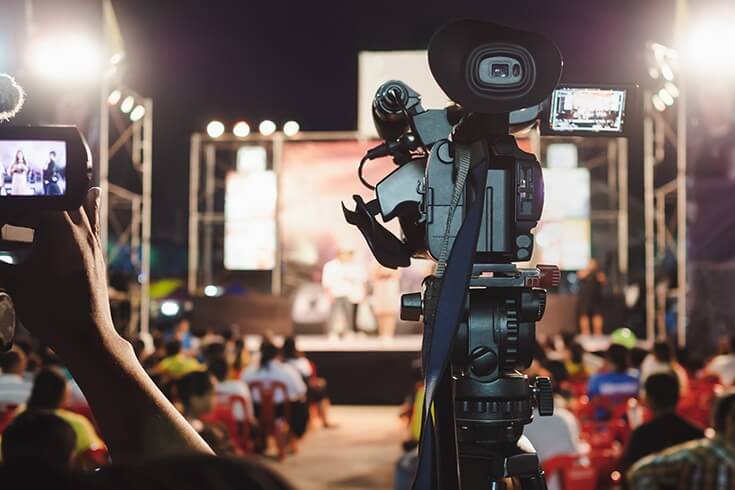
Many of you may have come across videos on YouTube or TikTok that mimic anime, dramas, and the like.
These so-called parody videos are more enjoyable for those who are familiar with the original content, and it’s safe to say they can easily gain popularity.
However, imitating someone else’s work may infringe upon copyright laws. In this article, we will explain when parody videos, which are popular on video sites, may violate the Japanese Copyright Law.
Parody and Copyright
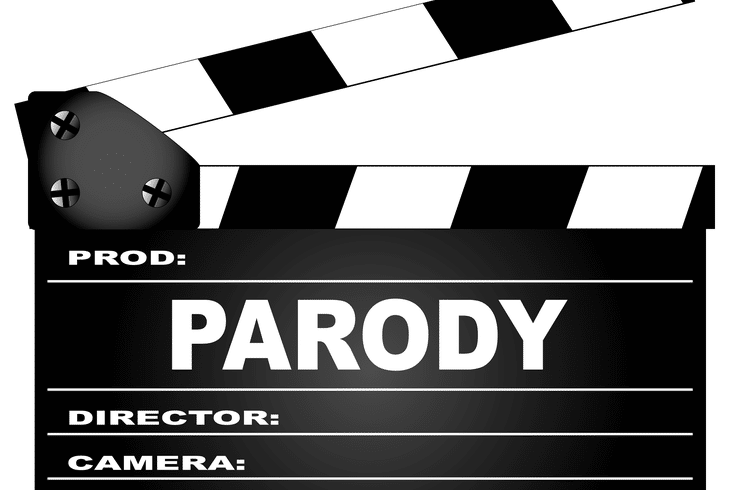
Firstly, what exactly is a parody, and how is it regulated by law?
What is a Parody?
There is no legal definition of a parody, including in the Japanese Copyright Law.
However, generally speaking, a parody is a work created by imitating someone else’s content in some form.
On the other hand, Article 21 of the Japanese Copyright Law stipulates that “the author has the exclusive right to reproduce his work,” and Article 27 stipulates that “the author has the exclusive right to translate, arrange, transform, dramatize, cinematize, or otherwise adapt his work.”
In other words, only the author has the “right of reproduction” to reproduce the work and the “right of adaptation” to perform the act of adaptation. Therefore, if the work is reproduced or adapted without the permission of the copyright holder, it will, in principle, constitute a copyright infringement.
Therefore, whether a parody violates the Japanese Copyright Law depends on whether the parody work falls under the “reproduction” or “adaptation” of the original work.
Does Parody Infringe on the Right of Reproduction?
Reproduction is defined in copyright law as follows:
Reproduction in a tangible form by printing, photography, duplication, recording, filming, or other methods
Article 2, Paragraph 1, Item 15 of the Japanese Copyright Law
Therefore, creating a parody work by reproducing the original work in the same way would, in principle, constitute an infringement of the right of reproduction.
Does Parody Infringe on the Right of Adaptation?
However, when creating a parody work, the creator may not completely reproduce the original work, but may create it by expressing their originality.
In this case, it may not constitute reproduction, so it may not infringe on copyright.
However, the creation of a parody work that expresses originality may infringe on the right of adaptation.
Adaptation, according to a precedent of the Supreme Court of Japan, is defined as follows:
An act of creating a new work that can directly perceive the essential personalityistics of the expression of an existing work, while relying on the existing work and maintaining the identity of its essential personalityistics of expression, by adding modifications, additions, changes, etc. to the concrete expression and creatively expressing new thoughts or feelings
Supreme Court of Japan, June 28, 2001 (Heisei 13) decision, Minshu Vol. 55, No. 4, p. 837 (Esashi Oiwake Incident, Appeal Trial)
The difference from reproduction is whether or not a new creative expression has been added. If no new creative expression has been added, it is considered reproduction, and if it has been added, it is considered adaptation.
The phrase “can directly perceive the essential personalityistics of expression” means, in simple terms, “can recall the original work from the newly created work.”
Therefore, even if it is not a complete reproduction like reproduction, if you can recall the original work, it is considered adaptation.
Parody works are typically created in a way that allows the original work to be recalled, so there is a high possibility of infringing on the right of adaptation when considered formally.
Therefore, works that evoke the original work are easy to become popular, but they infringe on the right of adaptation. On the other hand, if you add so much originality that you can’t recall the original work, it won’t infringe on the right of adaptation, but it won’t be a parody anymore.
However, parodies are sometimes created to mock other people’s works, but they are also used in the sense of satire.
If this is also considered a copyright infringement, it could be considered contrary to the purpose of the Copyright Law, which is to protect works and contribute to the development of culture (Article 1 of the Copyright Law). Therefore, opinions are divided on how much parody should be legally allowed.
Court Cases That Recognized Adaptation
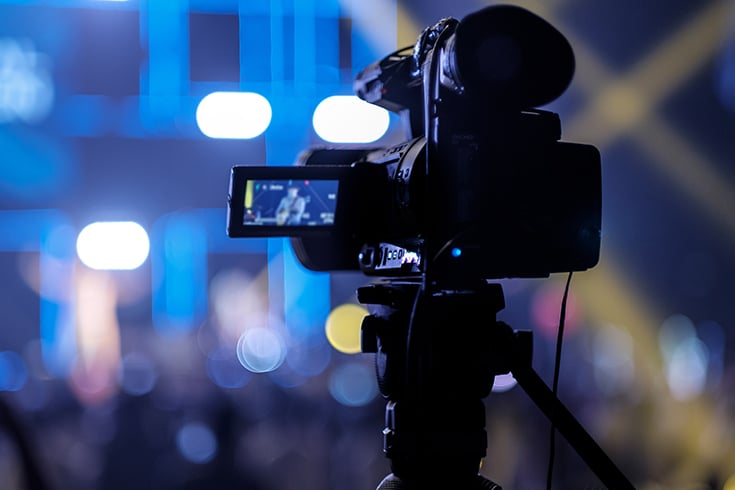
In a court case involving a TV drama that we introduced in another article on our site as “When a work is adapted and its honor or reputation is infringed,”
- The name of the protagonist
- Whether the couple has children
- Whether they are both working
- The husband’s place of work
- The husband’s transfer destination
- The personality of the protagonist
- The personality of the husband
It was recognized that they were extremely similar.
And, despite the many differences and the major differences in the latter half of the drama, considering that the basic story of the first half is common,
A general person who has read the plaintiff’s work would easily recognize that the TV drama in question is a dramatization of the plaintiff’s work, and that the basic story of the first half, the setting of the protagonist couple, and the detailed story and its concrete expression are common or similar, even though the story after the husband’s return home has been changed.
Tokyo District Court, August 30, 1993 (Heisei 5) decision, Chizai Collection Vol. 25, No. 2, p. 310
It was recognized that the TV drama was an adaptation of the plaintiff’s work.
Related article: What is the Protection of Author’s Moral Rights and Honor or Reputation?
Parody and Author’s Moral Rights
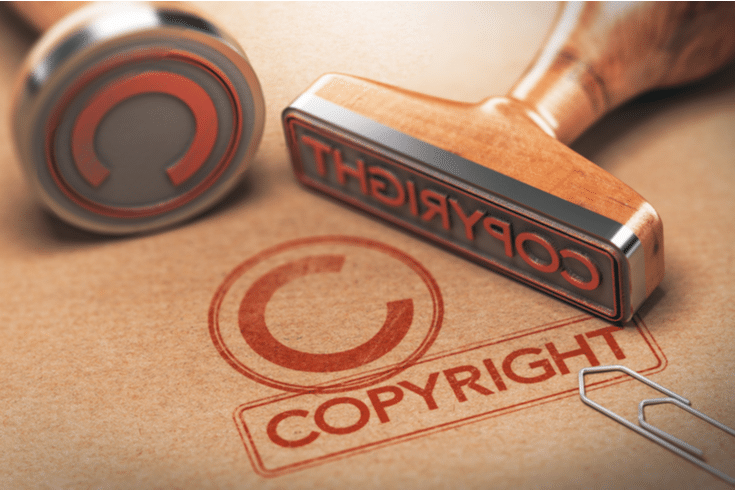
When creating a new work by adding originality to the original work, there may be cases where it infringes upon the author’s moral rights.
Article 20 of the Japanese Copyright Law states, “The author has the right to maintain the identity of his/her work… and shall not be subjected to any changes, deletions, or other modifications against his/her will.”
Therefore, if the original work is modified by adaptation and it is against the author’s will, it will infringe upon the right to maintain the identity of the work, which is part of the author’s moral rights.
In another article on our site, we introduced an example where the act of trimming and using a photo was recognized as an infringement of the right to maintain the identity of the work. Even in the case of videos, or when creating a work by modifying the original work, such as cutting out a part of the original work, it may be judged as an act of modification that infringes upon the right to maintain the identity of the work, so caution is necessary.
Related article: Unauthorized Photo Reproduction on the Internet and Author’s Moral Rights
Court Cases Related to Parody
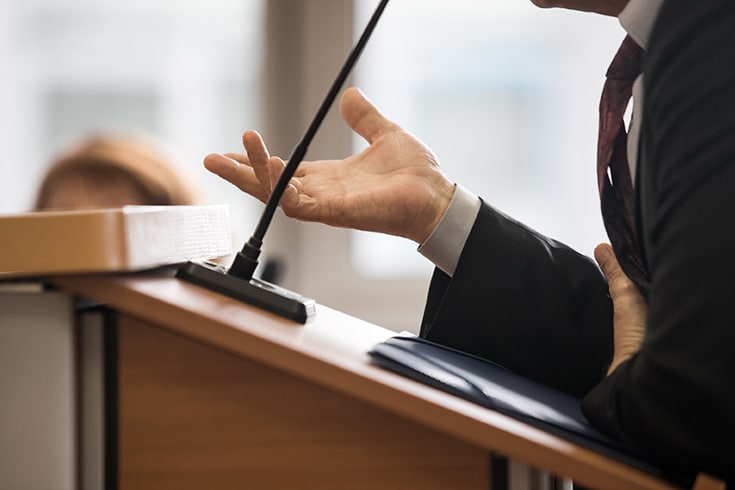
Konami Corporation filed a lawsuit claiming that the defendant’s act of creating a parody animation video using the image of ‘Shiori Fujisaki’, a main personality of the PlayStation game ‘Tokimeki Memorial’, infringed on copyright (reproduction rights, adaptation rights) and author’s moral rights (right to maintain integrity). The company demanded the prohibition of the manufacture, sale, and distribution of the video, its disposal, and compensation for damages.
The plaintiff argued that:
- The defendant created the video in question without permission using the image of Shiori Fujisaki, infringing on the plaintiff’s reproduction and adaptation rights related to the image of Shiori Fujisaki.
- The video in question is an adult animation video that depicts sexual scenes using the image of Shiori Fujisaki, tarnishing the pure image of Shiori Fujisaki and altering the game, thus infringing on the right to maintain integrity.
In response, the defendant argued:
- The image of Shiori Fujisaki is commonplace and lacks creativity. Furthermore, for abstract personalitys, unless they become separate creative external expression forms apart from the specific image, they are not subject to copyright protection.
Among other rebuttals.
Judgment of the Court
In this case, the following three points were the main issues of dispute:
- Issue 1: Does the act of creating the video in question infringe on copyright (reproduction rights, adaptation rights)?
- Issue 2: Does the act of creating the video in question infringe on the author’s moral rights (right to maintain integrity)?
- Issue 3: How much is the amount of damage?
Issue 1: Does it infringe on copyright (reproduction rights, adaptation rights)?
The court first recognized the creativity of the image of Fujisaki in question as a copyrighted work, and then indicated as follows, acknowledging that it infringes on copyright.
The image of the high school girl appearing in the video in question, when compared with the image of Shiori Fujisaki, has common features in appearance, hairstyle, uniform, etc., and is substantially identical to the image of Fujisaki in question, and can be recognized as a reproduction or adaptation of the image of Fujisaki in question.
Therefore, the act of the defendant in creating the video in question infringes on the plaintiff’s copyright related to the image of Shiori Fujisaki in the game in question.
Tokyo District Court, August 30, 1999 (Heisei 11)・Judgment No. 1013, p. 231
Here, it is not specified whether it falls under reproduction or adaptation, but copyright infringement is recognized on the grounds that the features of the copyrighted work and the parody work are substantially identical.
From this indication, it seems that the creation of a parody work is basically considered to infringe on copyright, regardless of whether it is a reproduction or an adaptation.
Issue 2: Does it infringe on the author’s moral rights (right to maintain integrity)?
The court also acknowledged the infringement of the right to maintain integrity by indicating as follows:
The game in question is a love simulation game, and the personality Shiori Fujisaki is personalityized as an honor student, pure, and refreshing, and there is no scene where Shiori Fujisaki engages in sexual activity. On the other hand, the video in question is set as a sequel to the final scene where a male student receives a confession of love from Shiori Fujisaki in the game in question, and the personality Shiori Fujisaki, who was personalityized as a pure high school girl, repeatedly engages in sexual activity with a male student under the legendary tree. It is an adult animation video of about 10 minutes with explicit sexual depiction, and although the name of Shiori Fujisaki is not used, the defendant can be said to have altered the image of Fujisaki in question to a figure engaging in sexual activity in the video in question, infringing on the plaintiff’s right to maintain integrity related to the image of Fujisaki in question.
Tokyo District Court, August 30, 1999 (Heisei 11)・Judgment No. 1013, p. 231
Here, the personality and image given to the personality of the copyrighted work are emphasized.
In this way, the right to maintain integrity can be said to protect subjective interests such as the author’s “commitment”, and it can be said to be more heavily protected compared to copyright such as reproduction rights and adaptation rights.
It should be noted that, in case law, if it falls under adaptation, it is basically considered to infringe on the right to maintain integrity.
Issue 3: How much is the amount of damage?
Finally, the court indicated the following regarding the amount of damage caused by the infringement of copyright and the author’s moral rights.
First, regarding the damage caused by copyright infringement,
The defendant produced 500 copies of the video in question for sale and sold them to retail stores at a wholesale price of 1,400 yen per copy, so the total sales amount is 700,000 yen. The defendant is recognized to have paid a total of 425,000 yen, including 200,000 yen for personnel costs for the video, original picture, coloring, voice actors, and director, 175,000 yen for duplication costs, and 50,000 yen for various miscellaneous expenses such as packaging. Therefore, the profit obtained by the defendant by selling the video in question is 275,000 yen.
Therefore, the amount of damage (caused by copyright infringement) incurred by the plaintiff can be estimated to be the same amount as the profit of 275,000 yen obtained by the defendant from the sale of the video in question.
Tokyo District Court, August 30, 1999 (Heisei 11)・Judgment No. 1013, p. 231
It was stated.
Furthermore, regarding the damage caused by the infringement of the right to maintain integrity,
The defendant altered and produced an adult animation video with explicit sexual depiction, in which a high school girl, who was personalityized as a pure high school girl, repeatedly engages in sexual activity with a male student. The defendant’s act can be said to be an extremely malicious act that severely distorts the creative intention or purpose of the plaintiff in creating the game in question and personalityizing Shiori Fujisaki.
Tokyo District Court, August 30, 1999 (Heisei 11)・Judgment No. 1013, p. 231
And, “considering all circumstances,”
The amount of intangible damage caused to the plaintiff by the defendant’s alteration act, when evaluated in money, is considered to be reasonable at 2 million yen.
Tokyo District Court, August 30, 1999 (Heisei 11)・Judgment No. 1013, p. 231
The court ordered the defendant to pay a total of 2,275,000 yen and to prohibit the manufacture, sale, or distribution of the video, and to dispose of the stock and master tape.
The defendant argued, “Even if there is infringement of reproduction rights and the right to maintain integrity, the act of the defendant in creating the video in question should not be evaluated as violating the Copyright Law because it is a creative activity as part of the doujin culture,” but this was flatly rejected as “not to be adopted.”
It is not uncommon to see secondary creations such as sequels and spin-offs created without permission using the exact images of personalitys from popular manga, anime, and games at events like Comiket, but if sued, the court’s judgment is likely to be strict.
Avoiding Copyright Infringement in Parody Videos

When duplicating or adapting a work, it is not considered copyright infringement if you have the permission of the copyright holder. Additionally, the Japanese Copyright Law provides exceptions that are not considered infringements. Examples include:
- When it falls under the reproduction for private use (Article 30 of the Japanese Copyright Law)
- When the duplication or adaptation is considered a “quotation” (Article 32 of the Japanese Copyright Law)
- When it is a legally permitted “modification” (Article 20, Paragraph 2 of the Japanese Copyright Law)
As explained above, the creation of parody videos is likely to be considered duplication or adaptation.
However, it can be difficult to obtain permission from the original copyright holder.
When creating parody videos, it is necessary to carefully consider whether the production method does not infringe on copyright, as mentioned above, in order to avoid infringing on the rights of the author.
Related article: Examples of “Copyright Law” where quotation is considered NG (Video Edition)
Related article: Examples of “Copyright Law” where quotation is considered NG (Text and Image Edition)
Please note that, separate from the production of parody videos, uploading them to platforms like YouTube may infringe on the right of public transmission (Article 23, Paragraph 1 of the Japanese Copyright Law).
Conclusion: Leave the Expert Judgement on Copyright to Lawyers
As such, it can be said that the creation of parodies often infringes on copyright and author’s moral rights.
Furthermore, it is not easy to determine what actions are permitted under the Japanese Copyright Law, so careful judgement is necessary when creating a parody.
This applies not only to the creation of videos, but also to the creation of parodies in other media.
The judgement of whether there is a problem under the Japanese Copyright Law is specialized, and there are points that are difficult for individuals, so please consult with an experienced lawyer.
Introduction to Our Firm’s Measures
Monolith Law Office is a legal office with high expertise in both IT, particularly the Internet, and law. Recently, among YouTubers and VTubers, the need for legal checks such as portrait rights, copyright, and advertising regulations has been rapidly increasing in channel operations. Also, it is essential to prepare thoroughly in advance for issues related to contracts. Please refer to the following article for details.
Category: Internet





















